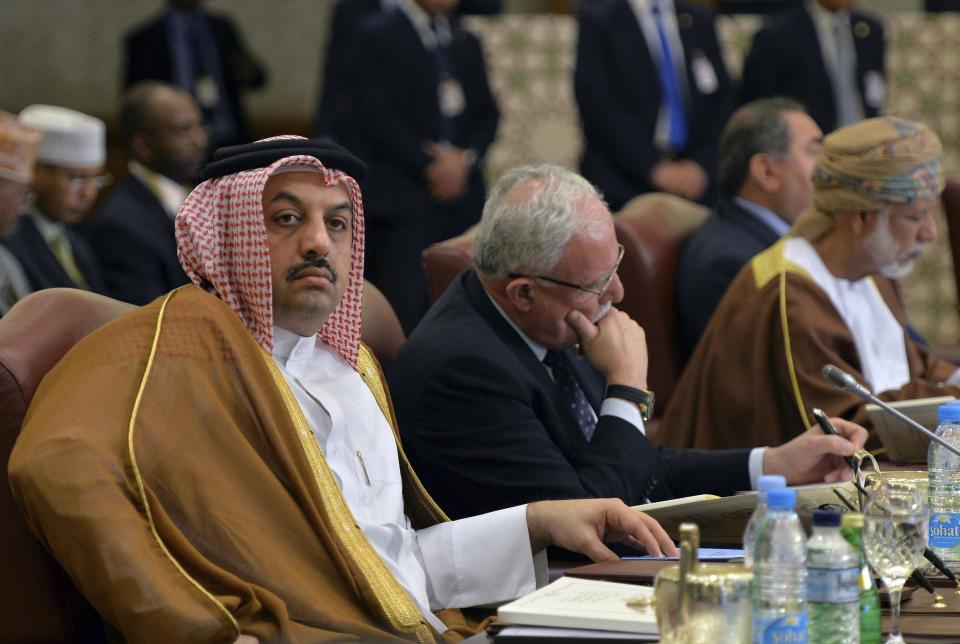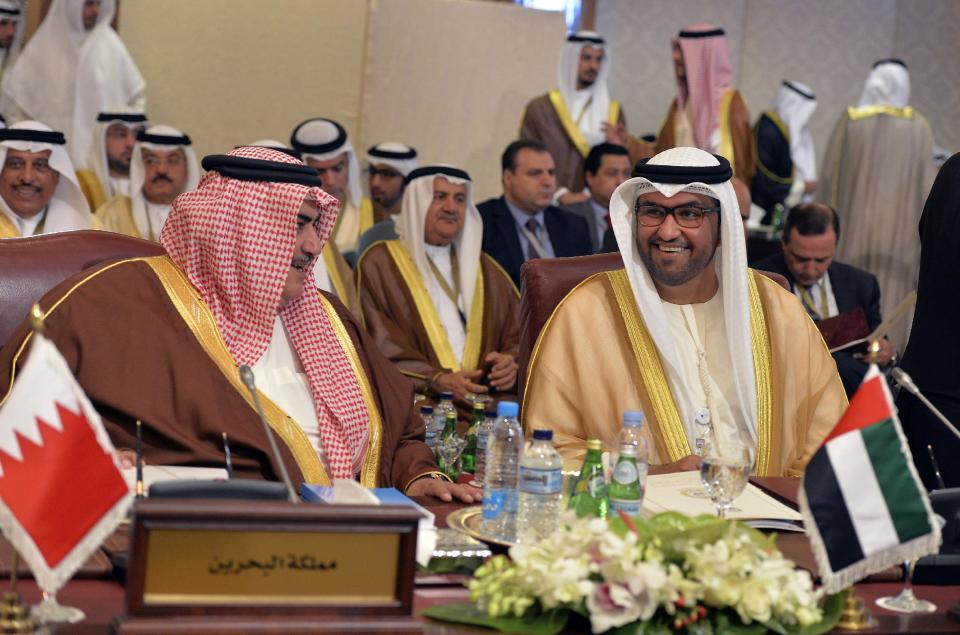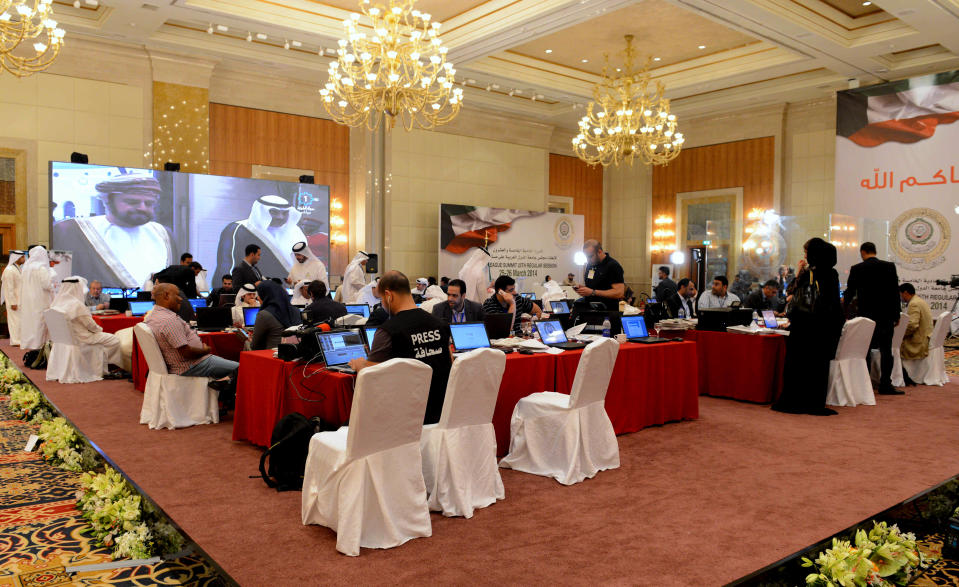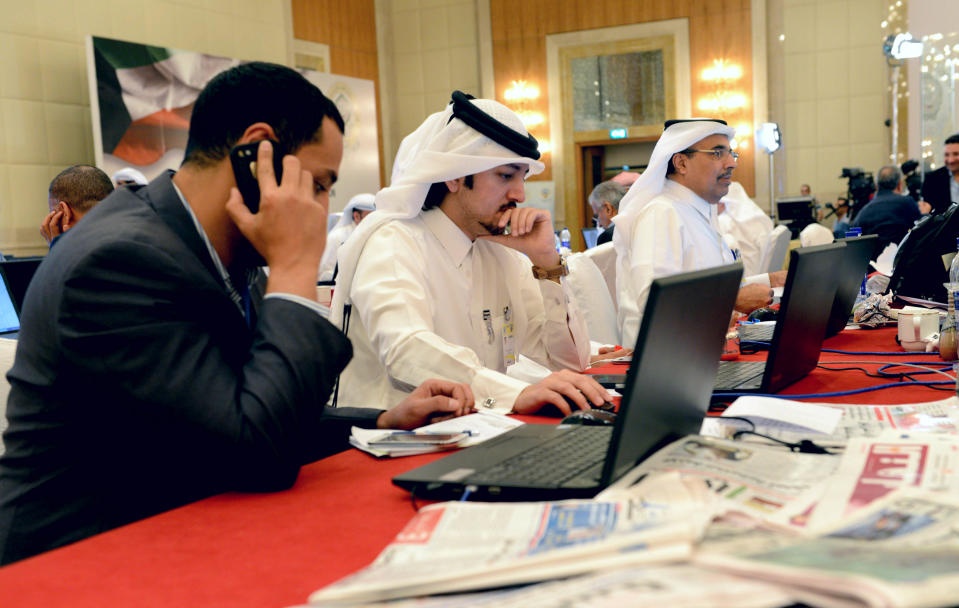Egypt, Saudi Arabia to pressure Qatar at summit
KUWAIT CITY (AP) — An assortment of Arab nations will likely use an Arab summit this week to try to pressure the tiny but wealthy Gulf nation of Qatar to stop supporting the Muslim Brotherhood and other opposition movements throughout the region.
Egypt and Saudi Arabia have labeled the Muslim Brotherhood a terrorist organization, and two senior Arab officials said Monday that those two countries would take the lead in attempting to isolate Qatar by calling for a collective Arab approach to terror.
The two-day Arab League summit in Kuwait, which begins Tuesday, follows months of tension over this issue. Bahrain and the United Arab Emirates have joined Egypt and Saudi Arabia in withdrawing their ambassadors from Qatar.
Qatar has reacted with dismay at the diplomatic gestures but insists it will push ahead with its own policies. Qatari Foreign Minister Khalid bin Mohammed al-Attiyah has said his country will "follow a path of its own" and that the independence of its "foreign policy is simply non-negotiable."
Qatar has in recent years played an outsized role in Arab affairs, spearheading efforts to resolve the Syrian crisis and mediating in some of Sudan's internal conflicts.
At the heart of Egypt's dispute with Qatar is its perceived support for the Brotherhood and former Egyptian President Mohammed Morsi, who was ousted last July in a coup. Cairo's military-backed government also blames the Qatar-based Al-Jazeera television network for inciting violence.
Saudi Arabia and its close Gulf Arab allies Bahrain and the United Arab Emirates complain that Qatar meddles in their internal affairs by supporting the opposition — the Muslim Brotherhood in the case of Saudi Arabia and the Emirates.
They also want Qatar to stop supporting Shiite rebels in Yemen, an impoverished Arabian Peninsula nation that is of strategic significance to Saudi Arabia. And they want Qatar to make sure that its arms shipments to guerrillas fighting the Syrian government do not wind up in the hands of terrorists.
One of the two Arab officials said Saudi Arabia and its two Gulf allies were adamant not to give Qatar any room for maneuver, and Saudi Arabia's foreign minister, Prince Saud al-Faisal, has expressed a similarly hard line.
"There will be a breakthrough only if that nation (Qatar) changed the policies that caused the crisis in the first place," al-Faisal told the London-based Al-Hayat daily recently.
Publicly airing differences among members of the six-nation Gulf Cooperation Council is unusual for that exclusive and traditionally secretive club created in the 1980s as a loose political and economic alliance. The members are Saudi Arabia, Bahrain, the UAE, Qatar, Oman and Kuwait.
But publicly berating Qatar over its foreign policy is unlikely to force change, according to Michael W. Hanna, a Middle East expert from the New York-based Century Foundation.
"No one in the Gulf region believes that Qatar will back down," said Hanna. "Going public with the dispute has made it all the more difficult to resolve. The dispute is likely to escalate."
Qatar's emir, Sheik Tamim bin Hamad bin Khalifa Al Thani, is expected to attend the Kuwait summit, while Saudi Arabia is likely to be represented by its crown prince. The United Arab Emirates is sending the ruler of one of the seven sheikdoms that make up the Gulf nation, while Bahrain is due to send its crown prince.
The need for a collective Arab approach to terror will figure prominently in an address at the summit's opening session Tuesday by Egyptian Interim President Adly Mansour, according to one of the Arab officials.
Mansour, a career judge, will restate a six-point plan of action against terror announced this month by Egyptian Foreign Minister Nabil Fahmy.
The points, designed to embarrass Qatar, include a ban on providing a safe haven for terrorists or aiding them in any way, assisting investigations into terrorist attacks and extraditing wanted militants, according to the official.
"Egypt has every intention to place this plan among the summit's top priorities," said the official. The two officials spoke on condition of anonymity because of the sensitivity of the subject.
___
Associated Press reporter Adam Schreck contributed to this report from Dubai, United Arab Emirates.




